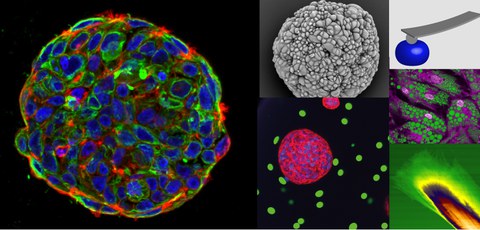Apr 30, 2020
Welcome to MSNZ fellow Anna Taubenberger starting as new BIOTEC research group leader
The engineer with a broad bio-medical background focuses on cancer mechanics
BIOTEC welcomes Dr. Anna Taubenberger as new research group leader. Her group "Oncomechanics" will study the mechanics of cancer cells and their surrounding tissue. Dr. Anna Taubenberger is supported by the BIOTEC and the Mildred Scheel Early Career Center Dresden, which enables clinician and medical scientists with a clinical relevant oncological research focus to establish their own research group. The Taubenberger group will be based at BIOTEC and will have close collaborations to research groups at the Max Bergmann Center and the University Hospital to promote an exchange between daily clinical needs and research to foster translation of research findings into clinical applications.
Dr. Anna Taubenberger has been associated with the BIOTEC and the TU Dresden as a postdoctoral fellow in the biophysics group of Prof. Jochen Guck's since 2013. Prior to this, she spent three years as PostDoc at the Queensland University of Technology in Brisbane, Australia, doing research in the field of tissue engineering, developing cancer models to study breast cancer bone metastasis. She holds a Master's degree in Bioprocess Engineering and received her PhD from the Faculty of Engineering at TU Dresden in 2009 on the topic of quantifying adhesive interactions between cells and extracellular matrix by single-cell force spectroscopy.
Anna Taubenberger emphasizes: "With my group we will focus on the functional role of breast cancer cell mechanics on cancer cell growth, invasion and metastasis. Besides mechanical characterization of tumour samples, we will use engineered 3D in vitromodels to systematically study the influence of microenvironment mechanics on cancer cell behaviour. These models also allow us to study the response of cancer cells to anti-cancer drugs in a more realistic way. In doing research at BIOTEC – with access to its great CMCB technology platform infrastructure – and close collaborations to the clinics we hope to contribute to new therapeutic cancer approaches."

